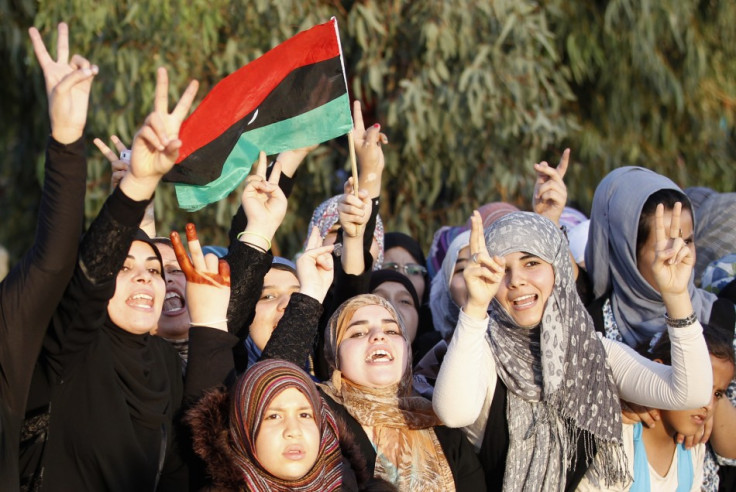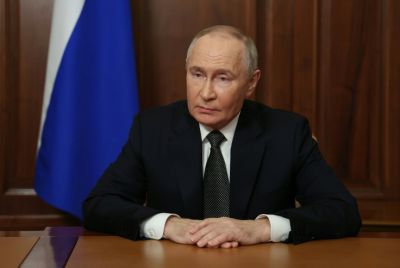Libya: Is al-Qaeda the Main Threat in the Aftermath of the Revolution?

With the black flag of al-Qaeda spotted alongside the new Libyan flag above a Benghazi courtroom, fears of the growing influence of the terrorist network in Libya are growing. Far from being the only threat to stability, al-Qaeda is however one of the many factions the NTC will have to keep under control to establish a more peaceful Libya.
Monday, images showing the black flag of al-Qaeda with inscriptions reading "there is no God but Allah" and a full moon underneath, circulated on the internet, prompting speculation the terrorist network is trying to gain influence in the aftermath of the revolution.
The ruling National Transitional Council (NTC) was forced to deny responsibility.
The web site Vice.com also reported Benghazi residents as saying they saw Islamists driving around the city's streets, waving the al-Qaeda flag and shouting "Islamiya, Islamiya! No East, nor West", in reference to worries the country could be divided into Pro-Gaddafi supporters in the West and Gaddafi opponents in the East.
The news is set to fuel rumours that al-Qaeda's influence is growing and suspicions about the NTC's involvement with Islamist extremist elements
Throughout the revolution however, fighters have made it clear they fought in the name of God, with "Allahu Akbar" or God is great being one of the most heard slogan.
It was also widely known that members of the Libyan Fighting Group, banned worldwide by the United Nation 1267 Committee and been accused of having links with al-Qaeda, had joined the rebels to overthrow the Gaddafi regime.
Indeed, the announcement by former chairman of the NTC, Mustafa Abdul-Jalil, that Islamic Sharia law would be the "basic source" of legislation in the 'free' Libya came as a surprise to many, and observers now fear the NTC could prove less liberal than first assumed.
What is surprising is how most of the warning signs have been ignored by NATO and the NTC throughout the conflict.
With arms widely distributed to fighters from both camps during the struggle, analysts had warned of instability and now two weeks after liberation of country infighting is still being reported.
On Monday, hundreds of rebels fought each other at a hospital in Tripoli, prompting fears that the revolutionaries are now splitting into different groups.
Despite being officially in charge, the death of Gaddafi and the continuing fights between different factions show that the NTC is not in control of the forces that fought against the dictator.
Moreover, as a result of the war thousands of men are now armed and sites full of weapons hidden by the former regime are also being looted.
The conflict has also bred fears of regional instability after abundant stocks of the Czech-made explosive Semtex have been found, with analysts now saying the explosives could fuel a new wave of suicide bombs attack in and outside Libya.
Libya's neighbour are now growing increasingly worried as militias and insurgency groups have reportedly managed to acquire Libyan weapons on the black market.
Countries like Algeria have been fighting domestic Islamist terrorism for years and Niger has faced a struggle with the Tuaregs tribes.
Man-Portable Air Defence Systems, (MANPADS) have also been found, and despite reassurances from NATO that efforts are being made to secure and destroy such weapons, analysts still fear they could end up in the hands of insurgency groups.
"The region has been turned into a powder keg," Mohamed Bazoum, the Niger foreign minister recently said at a conference in Algiers.
His comments were backed by Major Gen Robin Searby, the leader of a British delegation to ministerial talks in Algiers, who acknowledged the regional worries.
"Things have changed and degraded since the Libya crisis and the region is on a war path. With stolen weapons circulating, al-Qaeda's total impact is growing," Major Gen Robin Searby said.
"We recognise the heightened concern over developments in Libya posing even greater threats to regional stability" he added.
© Copyright IBTimes 2025. All rights reserved.




















